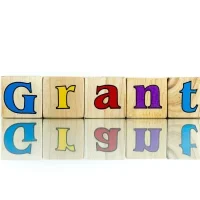Deadline: 31-Oct-22
The City of Toronto is inviting applications for Deep Retrofit Challenge.
The Deep Retrofit Challenge (the Challenge) is a competition-style program funded by the Federal Government, which will support deep retrofit projects that significantly reduce greenhouse gas emissions in approximately 10 to 16 buildings in Toronto.
Participating buildings will receive a grant equal to 25 per cent of their total project costs up to a maximum of up to $500,000 (depending on gross floor area and building performance) to offset the incremental design and construction costs required to achieve maximum emissions reductions. The selected projects will serve to demonstrate the deep retrofits needed to move buildings towards net zero emissions, with the goal of accelerating market adoption. Buildings are the largest source of greenhouse gas emissions in Toronto today, generated primarily by the burning of fossil fuels for heating and hot water.
Goal
The goal of the Deep Retrofit Challenge is to de-risk investment in deep energy retrofits, build market confidence, encourage voluntary compliance with existing building policies, and inform future energy codes.
Project Scope
Projects must use a comprehensive whole-building analysis approach, considering how components of the building work together as an integrated system. Eligible measures include:
- Building enclosure improvements such as insulation, high performance windows and air sealing.
- Energy recovery (ventilation, drain or equipment).
- Electric heat pumps (ground or air source) for space heating and hot water.
- Renewable electricity generation.
- Building controls.
Funding Information
- The Incentive Limit for each selected deep retrofit project is:
- $200/m2 of gross floor area up to a maximum of $500,000 or 25% of Total Project Cost, whichever is less.
- See Table A below to learn about the incentive disbursement amount at the different stages of the Deep Retrofit Project.
Eligibility Criteria
- Deep Retrofit Design Requirements
- Deep Retrofit Projects must meet all of the following mandatory requirements:
- Minimum greenhouse gas emissions reduction of 50%
- Minimum energy use intensity reduction of 50%
- Maximum payback of 20 years.
- Additional Project Requirements
- Use a comprehensive whole-building analysis approach to deep retrofits.
- Meet complete the Deep Retrofit Project and be operational on or before January 31, 2025.
- Be a retrofit of an existing building that has been occupied (not vacant) within the 12 months prior to the Application submission.
- Must not have commenced the retrofit and/or construction phase of their Deep Retrofit Project.
- Must be able to demonstrate ability to fund the project.
- Building Eligibility
- Buildings must be located within Toronto and be an Ontario Building Code Part 3 building (i.e. greater than 600 square metres or greater than three storeys). Eligible buildings include:
- Multi-unit residential buildings (including condominiums, apartments, etc.)
- Commercial office buildings.
- Mixed-use buildings (residential and commercial, including residential over commercial).
- Participant Obligations
- Enter into the Deep Retrofit Challenge Participant Agreement
- Provide a calibrated pre- and post- retrofit energy model using EnergyPlus, EQuest, or similar software.
- Participate in a design charrette and other workshops or training organized by the City to identify various energy and environmental improvements that may be achieved with their deep retrofit including opportunities to advance the design.
- Agree that the City can make the details of the Deep Retrofit Project publicly available, including utility energy use and costs, designs, and project costs, to help drive uptake of similar retrofits. Deep Retrofit Projects will be featured in case studies and recognized for early transformative action.
- Calculate and report on projected embodied carbon for major construction materials during the design phase (embodied carbon will not be factored into the performance incentive calculation) and prepare a plan to minimize embodied carbon during the retrofit.
- Not apply for any rent increases above the guideline as identified in the Residential Tenancies Act in connection with any portion of improvements funded through the Challenge.
- Allow the City to make all decisions respecting the disposition of the emission reduction credits attributable to the Deep Retrofit Project.
- Submit quarterly Progress Reports throughout the Project Term.
- Grant the City of Toronto access to the Building to verify progress status, support creation of knowledge sharing products, or similar activities.
- Provide a minimum of one year of pre-retrofit utility data for the Building (with preference given to additional provided data).
- Provide a minimum of five years post-retrofit utility data for the Building.
- Design and implement the retrofit using an approach that is replicable to similar building types across the city of Toronto and across similar climates within Canada.
- Participate in City media event(s) and/or advertising campaigns promoting the Deep Retrofit Challenge and the Participant’s Deep Retrofit Project, including the building, technologies, etc.
- Participate in the initial cohort of volunteers for the Net Zero Existing Buildings Strategy Actions 1 to 3, which include:
- Annual emissions (and energy) performance reporting, public disclosure, and labelling.
- Greenhouse gas emissions performance targets.
- Performing energy and emissions audits and tune-ups (at regular intervals).
For more information, visit https://www.toronto.ca/services-payments/water-environment/environmental-grants-incentives/deep-retrofit-challenge/









































